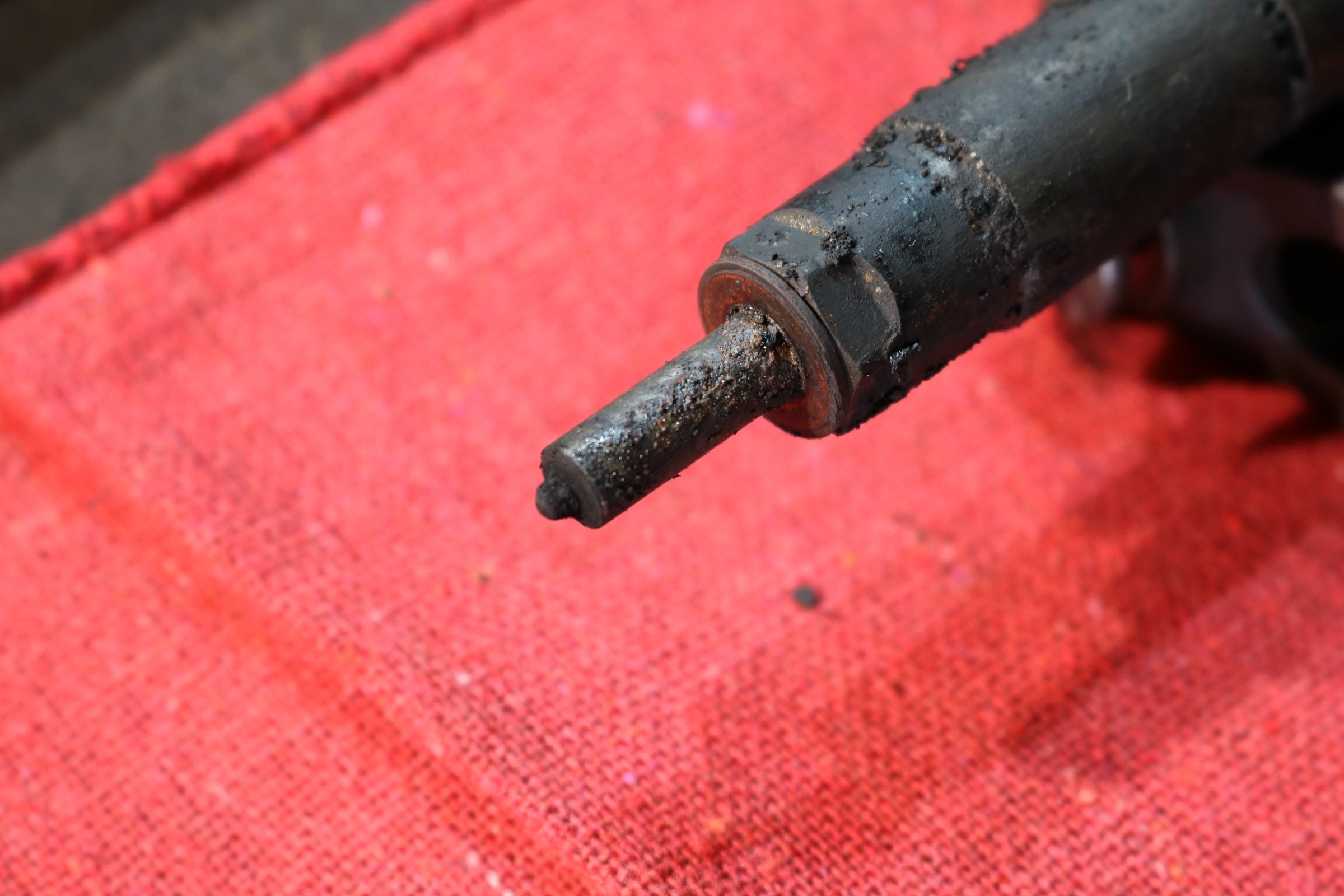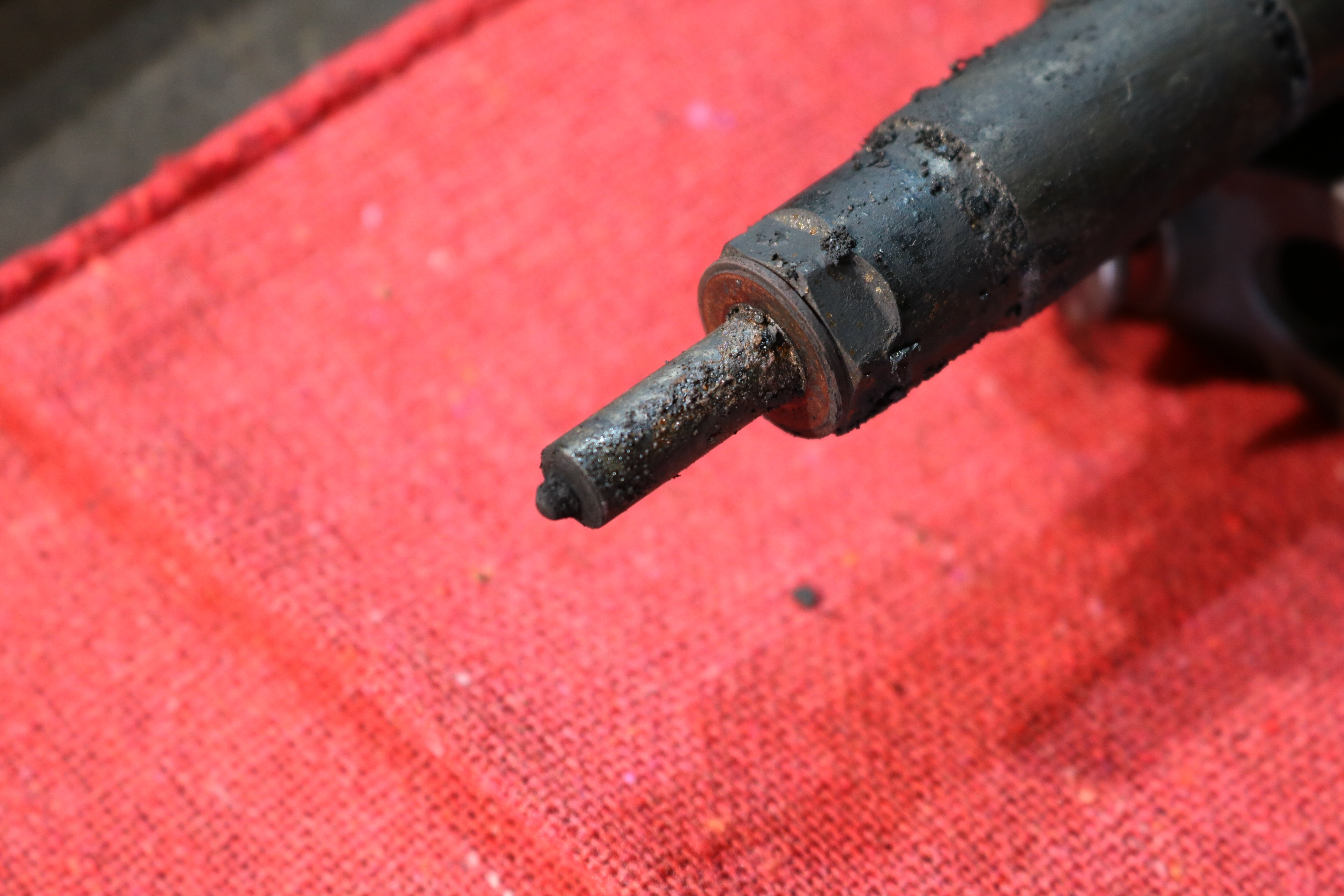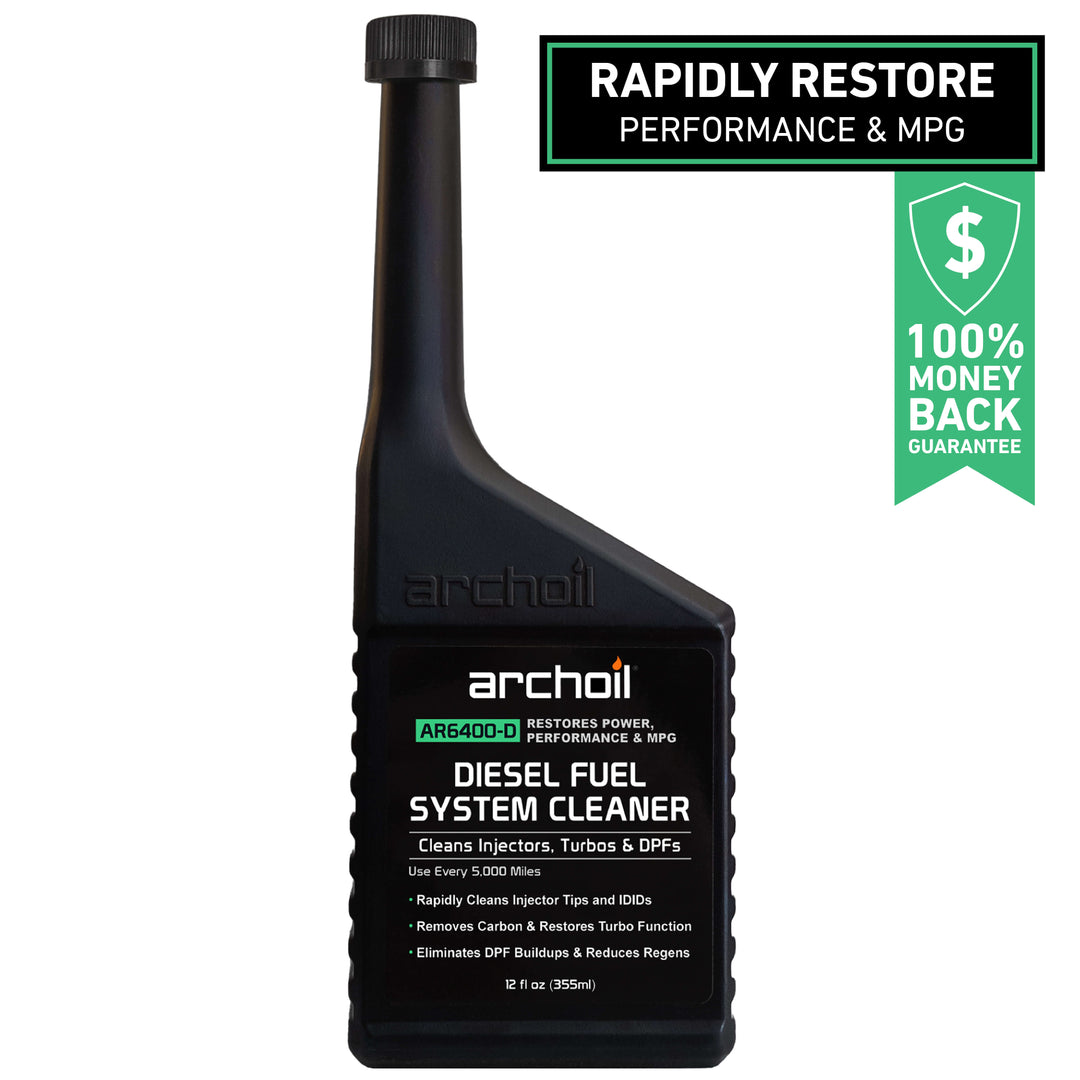How Soot Builds Up in Diesel Engines (and Why Injectors Matter)
Diesel engines rely on a precise, fine mist of fuel from their injectors to burn cleanly. If the fuel doesn’t atomize properly, combustion is incomplete and soot forms. Over time, injectors can develop carbon and varnish deposits that disrupt the spray pattern. A dirty injector with a clogged nozzle delivers a coarse, uneven fuel spray that leads directly to incomplete combustion. This creates poor atomization of the fuel and overly “rich” pockets of fuel in the cylinders that can’t completely burn, resulting in excess soot production. In contrast, a clean injector produces the intended ultra-fine mist, allowing the fuel to burn completely.
In short, dirty injectors = more soot, whereas clean injectors = a more complete burn with less soot.
The Impact of Excessive Soot on Performance and Emissions
- Reduced Fuel Economy: Soot represents fuel that didn’t generate power. More fuel is wasted as soot or unburned hydrocarbons instead of driving your truck forward. The result is lower MPG.
- Power Loss: Fouled injectors lead to incomplete combustion and reduced power output. You may feel sluggish throttle response or lost horsepower.
- Higher Particulate Emissions (Black Smoke): Dirty injectors produce heavy soot, visible as dark exhaust smoke during acceleration or load.
- Strong Diesel Odor: Unburned hydrocarbons create a pungent exhaust smell. If your truck stinks of raw diesel, combustion is incomplete.
- Aftertreatment System Stress: Excess soot overwhelms the DPF, requiring frequent regens. This stresses the turbo and EGR system and can lead to costly repairs or even DPF replacement.
Injector Fouling: A Key Culprit Behind Soot Formation
Even a small build-up of deposits in the injector nozzle can distort the spray pattern and increase soot. The tiny holes get constricted, leading to poor atomization and fuel-rich areas in the combustion chamber that don’t burn cleanly. Studies show even minimal nozzle coking increases particulate emissions significantly.
When injectors are dirty, more fuel ends up as carbon and smog rather than energy. That means rough idling, weaker acceleration, and poor fuel efficiency — because you’re literally sending fuel out the tailpipe as soot.
The takeaway: Keeping injectors clean is critical if you want to avoid the domino effect of poor combustion → soot → power loss → higher emissions.
Dirty vs. Clean Injectors: A Night-and-Day Difference
- Soot Output: Dirty injectors produce thick black smoke. Clean injectors cut soot dramatically for a cleaner exhaust.
- Soot Particle Size & Clumping: Dirty combustion creates large, fluffy soot clumps that are harder for the DPF to handle. Clean injectors produce finer particles that are easier to burn off during regen.
- Fuel Efficiency & Power: Dirty injectors waste fuel. Clean injectors restore combustion efficiency, boosting MPG and throttle response.
- Engine & Emissions System Health: Soot from fouled injectors builds up in the pistons, valves, turbo, and DPF. Clean injectors reduce this load, improving longevity and minimizing regens and downtime.
A truck with dirty injectors smokes, struggles, and wastes fuel. With clean injectors, it runs smoother, stronger, and cleaner.
Keeping Injectors Clean Dramatically Reduces Soot
Soot build-up isn’t inevitable — it’s preventable. When your injectors are clean, they spray a fine mist that burns more completely, producing less soot and fewer emissions.
Modern ULSD fuel lacks detergents and lubricity. Without additives, injectors clog, soot forms, and the whole system suffers. But a high-quality diesel additive can fix that: it dissolves injector deposits, prevents new ones, boosts cetane for better combustion, and adds lubricity to protect components.
Regular use keeps injectors clean and flowing freely — giving you consistent, efficient, low-soot combustion.
A Preventive and Restorative Solution: Archoil’s Diesel Fuel System Kit
To fight soot at the source, Archoil developed the Diesel Fuel System Kit, a two-part treatment that restores and protects injector performance:
- AR6400-D Diesel Fuel System Cleaner: A deep-cleaning, one-tank treatment formulated with high-strength detergents that clear coked injector nozzles and heavy soot deposits — rapidly restoring power and MPG.
- AR6500 Diesel Treatment: A cetane-boosting, detergent-rich fuel additive for every fill-up. It improves ignition quality for a more complete burn, adds lubricity, and keeps injectors clean between AR6400-D treatments.
This combo restores injector spray quality and then protects it long-term. You’ll see less smoke, fewer regens, smoother power, and fuel mileage gains of 1–2 MPG aren’t uncommon. It also reduces DPF stress and minimizes the risk of costly failures.

Bottom Line
Don’t let soot build-up rob your diesel of its power, efficiency, or reliability. Keeping your injectors clean is the key to a healthy engine — and Archoil’s Diesel Fuel System Kit makes it easy.
Ready to clean up your combustion and reduce soot? Check out the Diesel Fuel System Kit here and bring your engine back to full strength.











